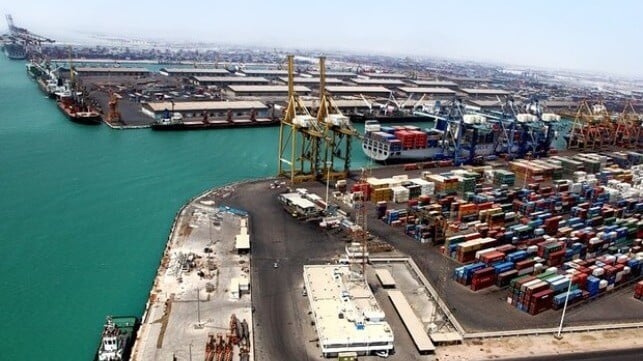Iranian Shipping Will Be Affected by UN Snap-Back Sanctions

The UN Security Council voted on September 19 to reject an attempt to delay the re-imposition of the 2015 sanctions regime, under an automatic mechanism which can be triggered if Iran fails to observe previous agreements made to monitor activities associated with nuclear weapons development.
The move follows the failure of an Iranian team negotiating with France, Germany and the United Kingdom, known as the E3, to make credible proposals. The Iranian negotiating team, led by Foreign Minister Abbas Araghchi, requested a postponement of the snapback in exchange for a promise to re-open discussions with the United States, but without offering any substantive indications of what Iran might offer in such negotiations. Moreover, from furious debates both within the Iranian parliament and within the government-controlled media, it was unclear even if Foreign Minister Araghchi had the authority to promise the resumption of talks, let alone what such negotiations might concede.
Therefore, unless a breakthrough can be achieved by Iranian President Masoud Pezeshkian during the forthcoming General Assembly in New York, the 2015 sanctions regime will be re-imposed on Iran on September 27. But given the failure of negotiations between the E3 and Iran so far, the Iranians will have to make concrete proposals in writing, with the declared backing of the Iranian Supreme Leader, if snapback is to be averted.
The sanctions regime on track to be imposed will be significantly more effective than current restrictions imposed on Iran. Iran is currently under US maximum pressure sanctions, and the sanctions regimes imposed separately by Western nations. But the re-imposed regime will have UN authorization, the lack of which in the separate national sanctions schemes currently in force provides an excuse for some countries, such as China, India, Malaysia and the UAE, to continue trading with Iran. Restrictions on oil and gas exports, shipping, banking and access to the international financial system, weapons production, insurance and technical imports will all be tightened.

that matters most
Get the latest maritime news delivered to your inbox daily.
The prospect of this occurring is already provoking heated controversy in Iran, where the consequences are seen as potentially devastating. It is of some significance that Presidents Trump and Xi Jinping had their third telephone conversation this year on September 19, and are on track for a face-to-face meeting in South Korea. In these discussions, China’s domestic needs to ease the threat of US tariffs are likely to be prioritized over any desire to provide support to Iran. The increased pressures will have direct economic impacts. But it will also have political stability consequences, feeding through into the ferocious internal debate within the Iranian political elite between the hardliners and the IRGC, juxtaposed against pragmatists led by the Iranian President Pezeshkian.
For the maritime community, a reinvigorated anti-Iranian sanctions regime is likely to impact the operations of the government-owned 115 vessel merchant fleet operated by Islamic Republic of Iran Shipping Line Group (IRISL) and subsidiary companies, and the 38 aging VLCC tankers operated by National Iranian Tanker Company (NITC). There are also likely to be impacts on the relative protections currently enjoyed by Iranian oil held in tankers offshore, and on ship-to-ship transfers.
